
Study sheds light on mental health disclosure among workplace leaders A new University of Windsor study seeks input from leaders who have experienced mental health challenges. (COURTNEY/PEOPLEIMAGES.COM – stock.adobe.com/University of Windsor) When it comes to mental health in the workplace, most conversations focus on employees seeking support from their supervisors. But what happens when the person in charge is the one struggling? A new study from the University of Windsor aims to answer that question by exploring how leaders manage mental health challenges and whether they choose to disclose those experiences to their teams. The research, led by Dr. Kyle Brykman, professor of management at the Odette School of Business, opened its screening survey Monday, Jan. 19 and will run for approximately four weeks. The study targets leaders who supervise at least one employee and have faced mental health challenges such as anxiety or depression. Participants will first complete a brief screening survey, which takes about five to 10 minutes and determines eligibility…

Getting Heated: Profs talk queer representation in sport and media Actors Hudson Williams and Connor Storrie play hockey rivals Shane Hollander and Ilya Rozanov in the hit streaming show Heated Rivalry. (BELLMEDIA/University of Windsor) From social media to the Golden Globes, the spicy new TV show Heated Rivalry seems to be everywhere. The Canadian-made romance, directed by Jacob Tierney and based on the book series by Rachel Reid, centres around fictional gay and bisexual professional hockey players navigating their on-ice careers and personal lives. The show has become a cultural phenomenon, receiving wide-scale attention not just for its steamier scenes but its positive representation of queer characters. “I think it's a representation of queer joy, which is not always included in the media,” says Dr. Dana Ménard regarding the show’s sudden popularity. Ménard, a professor of psychology, studies sex, sexuality, gender identity and sexuality in media. “At the end of the day, it's a love story, and there really…
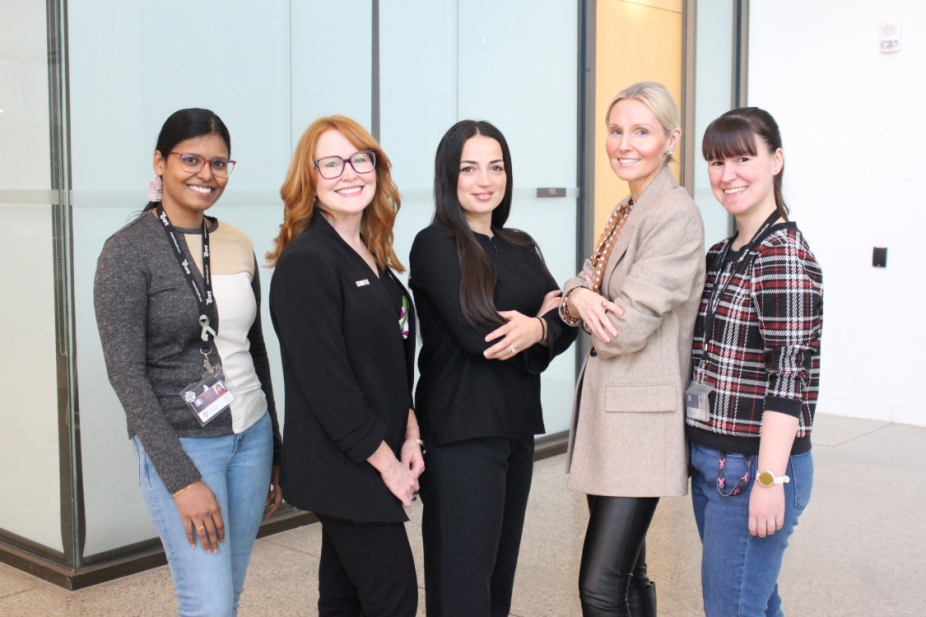
Brain health research highlights powerful protein’s role in stem cells and tumour growth Hema Priya Mahendran, Lisa Porter, Ingrid Qemo, Dorota Lubanska and Bre-Anne Fifield are a few of the authors on a new paper published in the journal Stem Cell Reports. (ANGELA KHARBOUTLI/University of Windsor) The key to designing future brain cancer therapies could lie with a mighty protein called Spy1, which is found in neural stem cells in the adult brain. Neural stem cells play a critical role in memory, learning and brain repair. Since these cells decline as we age, Spy1 becomes important because, at certain levels, it can help “wake up”, or turn on, these stem cells in a process called neurogenesis. But new research suggests that too much of a good thing can be harmful. “We know that elevated levels of Spy1 are found in aggressive human brain cancers, including glioblastoma,” says principal investigator Dr. Lisa Porter. “We wanted to understand what this protein does in normal adult brain stem cells before cancer develops.” Porter’s research team designed…
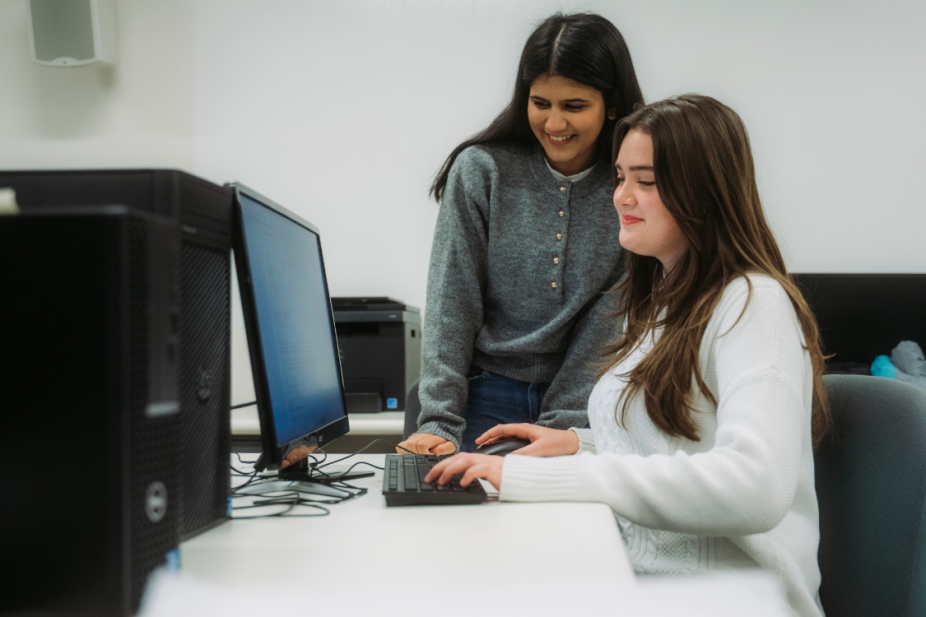
AI research at UWindsor shows promise for earlier detection of eye disease First-year engineering students Saxon Vandenwollenberg (seated) and Sneha Chitte (standing) helped to develop custom artificial intelligence models to help detect diabetic retinopathy and presented their findings at the 37th IEEE International Conference on Microelectronics. (MIKE WILKINS/ University of Windsor) Researchers at the University of Windsor, including two first-year engineering students, have developed custom artificial intelligence models to help detect diabetic retinopathy — a leading cause of adult blindness — at earlier stages of the disease. Their work compared four machine learning models, known as convolutional neural networks (CNNs), designed to analyze retinal images and identify patterns associated with the condition. “We are using databases along with machine learning,” said Dr. Esam Abdel-Raheem, a professor in the Department of Electrical and Computer Engineering. “This means we train neural networks (i.e., a network inspired by the human nervous…
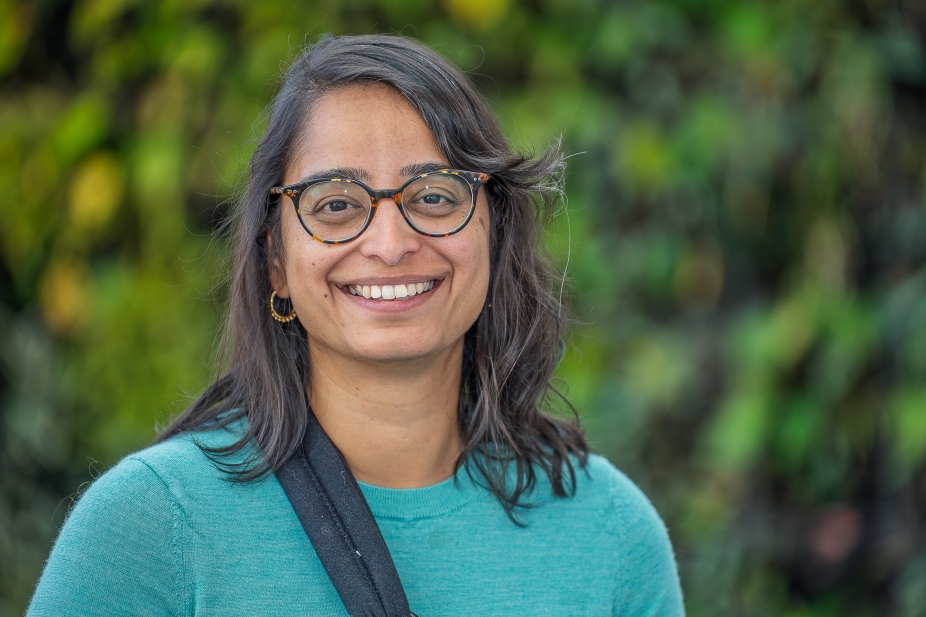
Get to know Dr. Swati Mehta: New faculty member in Human Kinetics Dr. Swati Mehta joined the University of Windsor's Faculty of Human Kinetics in 2025 (FILE/University of Windsor) Inhabiting the intersection between kinesiology, psychology and computer science, Dr. Swati Mehta’s research is the definition of interdisciplinarity. A new faculty member in kinesiology as of 2025, Mehta takes a holistic approach to mental and physical health while exploring novel technological supports. Her interdisciplinary stance makes perfect sense given her varied educational background, which began with an undergraduate degree in anatomy before later returning to school for a master's in counselling psychology. “My trajectory is very different from traditional faculty members,” Mehta acknowledges. “I liked the research aspect and the clinical aspect, and I just wanted to combine the two.” To this end, she completed a PhD in health and rehabilitation sciences at Western University, later completing a postdoctoral fellowship at the University…
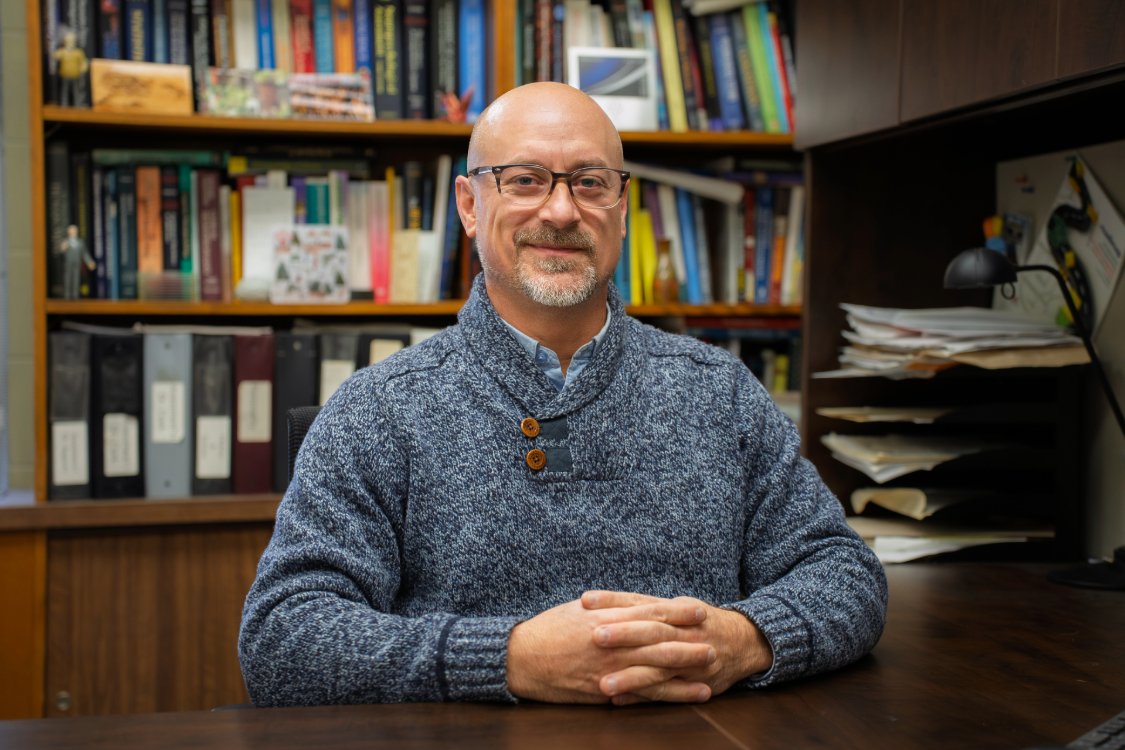
Exploring hidden factors that influence concussion recovery in athletes Neuropsychology PhD student Vanessa Correia and professor Dr. Christopher Abeare, who also serves as clinical supervisor at the Sport-Related Concussion Centre (SRCC) at the University of Windsor in Windsor, Ont., on Wednesday, Dec. 4, 2025. (DAVE GAUTHIER/ University of Windsor) We spend about a third of our lives asleep, and those hours are crucial for everything from mood to muscle repair. Now, University of Windsor researchers are asking whether poor sleep could put athletes at greater risk of concussion—and affect how they recover. “There’s tons of new research coming out about sleep, and it’s super important for many different things,” said neuropsychologist and professor Dr. Christopher Abeare, who also serves as clinical supervisor at the Sport-Related Concussion Centre (SRCC) on campus. “If you have poor sleep, you’re at increased risk of diabetes, Alzheimer’s disease and heart conditions. During sleep, the brain goes through a process of cleaning…
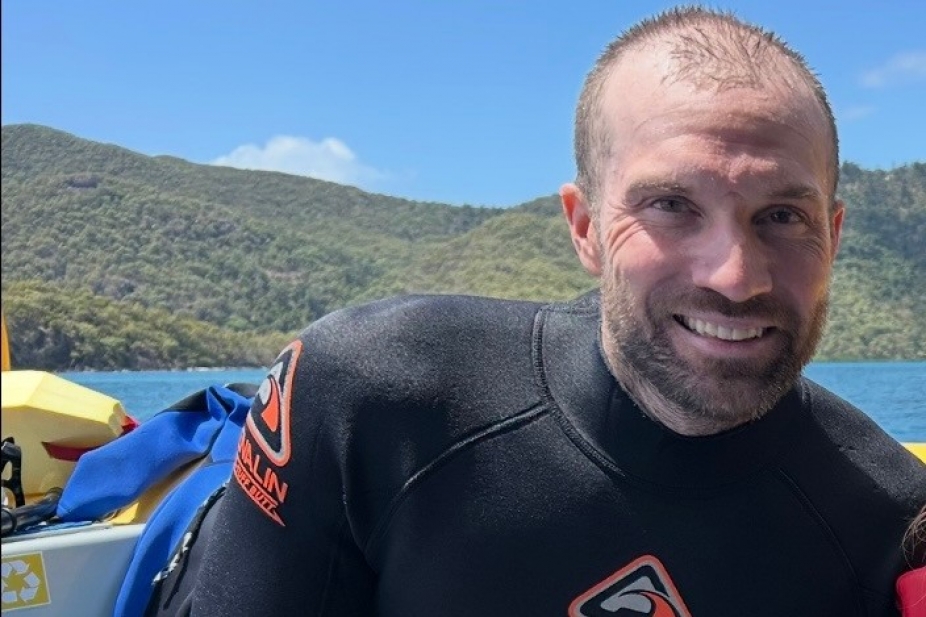
(Do) hold your breath: Kinesiology professor tries out freediving Dr. Anthony Bain went from studying freedivers to trying out their techniques (SUBMITTED BY ANTHONY BAIN/University of Windsor) Science communication can be difficult. Rendering complex physiological processes in a way that lay audiences can understand is no easy task. Neither is holding your breath for four minutes. University of Windsor professor of Kinesiology Dr. Anthony Bain is, however, up to both challenges. In his article “From bedside to seaside: An academic’s attempt at freediving,” published this year in the Journal of Experimental Physiology, Bain narrates his experience putting his academic work with professional freedivers into practice in a “feats of strength” competition with his brother. “The lived experience section in Experimental Physiology, it’s awesome,” Bain says. “It’s all academics or researchers trying the thing that they’ve been researching. Whether it be a marathon, their experience with it, it really brings a great way…
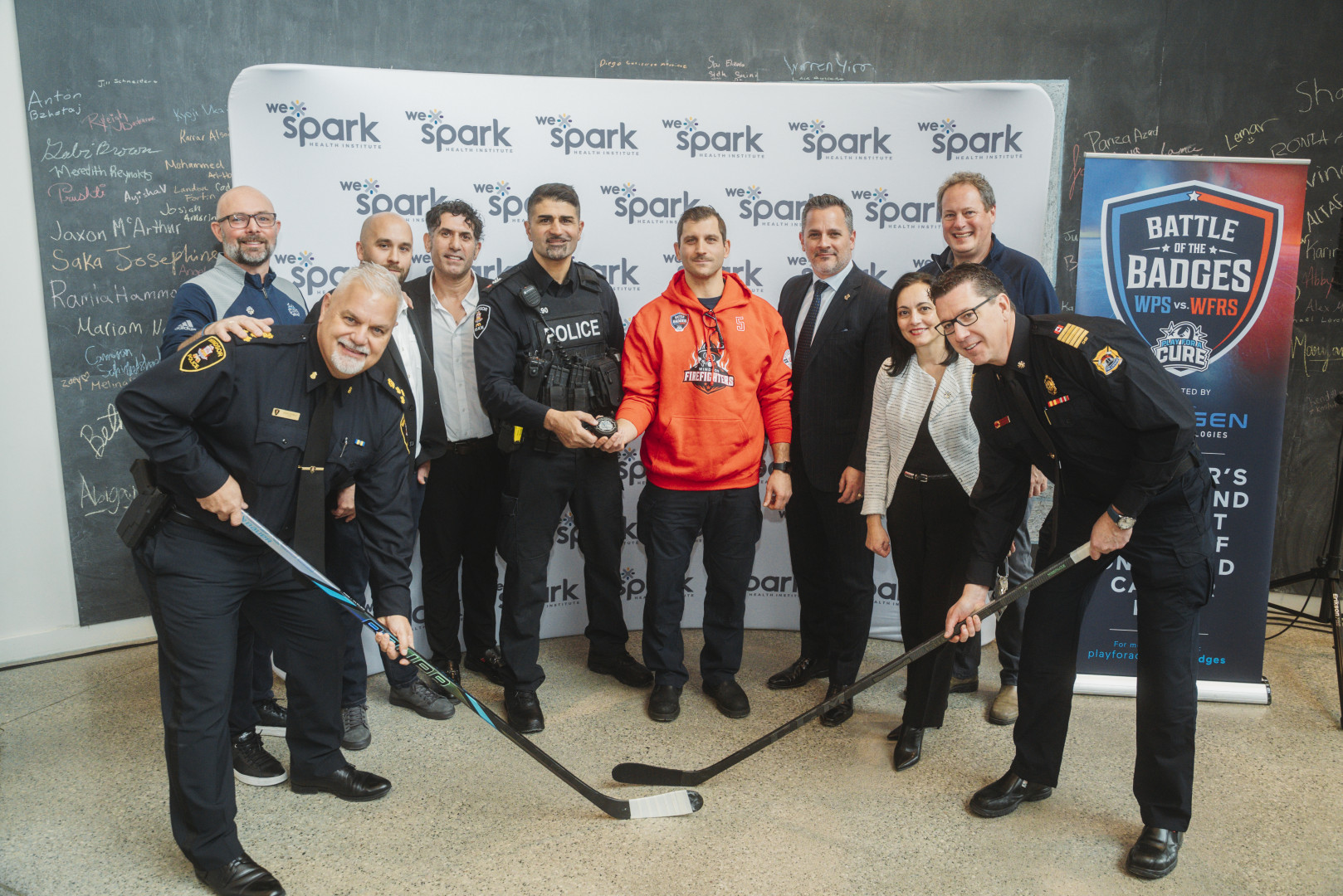
‘Not just a hockey game’: Windsor first responders battle cancer together Windsor police officers and firefighters are ramping up a friendly rivalry and lacing up skates for a cause that hits close to home: funding local cancer research. The inaugural Battle of the Badges, a charity hockey game pitting the Windsor Police Service against Windsor Fire & Rescue Services, will take place Feb. 4, 2026, at the WFCU Centre on World Cancer Day. All proceeds will support local cancer research initiatives. Fire Chief Jamie Waffle said cancer remains the leading line-of-duty health risk within the fire service. “In the fire service, cancer is obviously near and dear to our hearts,” Waffle stated. “It is our number one risk factor for injury, for line-of-duty deaths.” Waffle said the impact is not theoretical, noting the department has lost members in recent years to job-related cancers and currently has several active firefighters undergoing treatment. “We have several members who passed in recent years due to cancer-related causes from the job,” he said.…
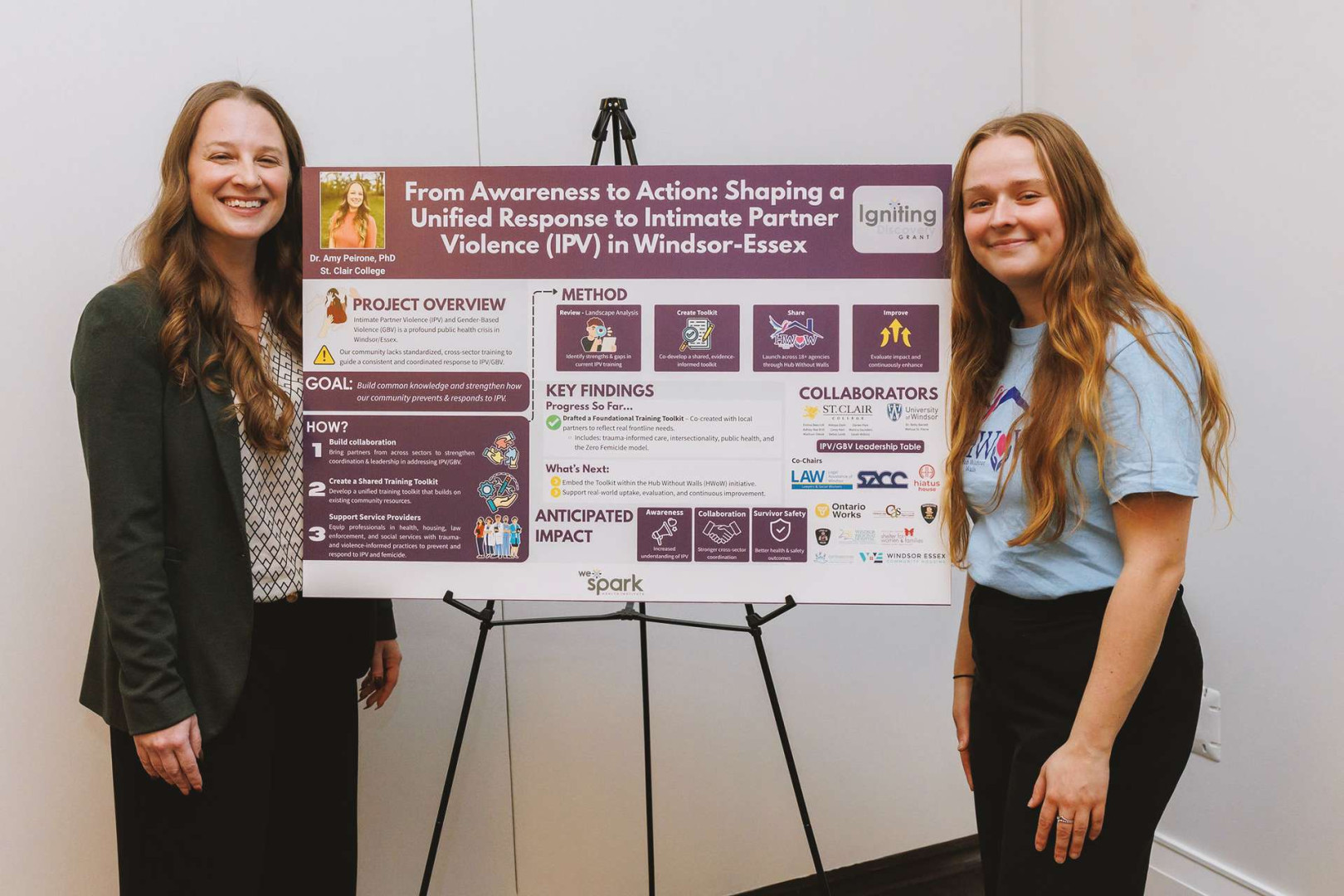
Cheers to Hope brings community together to support health research and innovation, showcase projects Dr. Amy Peirone and St. Clair alumna Madison DeKok at the Cheers to Hope event at Ambassador Golf Course on Nov. 6, 2025. (Dylan Anthony/WE-SPARK Health Institute) The Windsor-Essex community recently came together for an inspiring evening of connection and celebration at "Cheers to Hope," in support of WE-SPARK Health Institute's Grants Program, which included a project based out of St. Clair College. The event on Nov. 6 at the Ambassador Golf Club gathered researchers, healthcare professionals, students, and community members from across WE-SPARK's five partner institutions, Erie Shores HealthCare, Hôtel-Dieu Grace Healthcare, St. Clair College, the University of Windsor, and Windsor Regional Hospital, to showcase the innovative health research and collaborations improving lives across the region. "Cheers to Hope is about more than fundraising. It's about celebrating the partnerships, creativity, and compassion that drive health research in Windsor-Essex,"…











